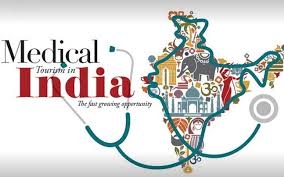
Lifestyle diseases like diabetes, high cholesterol and hypertension may lead to cardiovascular disease, says Dr. Vivek Jawali, Chairman, Department of Cardio Vascular Sciences and Chairman, Medical Advisory Council, Fortis Hospitals Karnataka, in an article.
“These factors are modifiable diseases and can be treated or cured. A chronically stressful life, social isolation, anxiety and depression increase the other risk of heart disease and stroke,” he adds.

His article gives a deep insight into the risks involved if you have any of the following lifestyle diseases.
- Dyslipidemia (abnormal cholesterol, triglycerides and other lipids in the blood)
Cholesterol is a waxy, fat-like substance which is found in cells of the body. People who have high blood cholesterol have a greater chance of getting coronary heart disease, also called coronary artery disease. When cholesterol is high, it gets build in the inner lining of the arteries, forming a material called plaque. With time, build-up plaque narrows the artery and blocks blood flow through it. People with high cholesterol, high triglycerides, low good (high density), high bad(low density)cholesterol and abnormal lipoproteins are likely to develop more heart attacks and strokes.
2. High Blood Pressure

When one has high blood pressure, the heart works harder to push blood around the body. To cope up with the extra effort, the heart becomes thicker and stiffer, which makes it less able to do its job.
3. Diabetes
If you have diabetes, the chances of developing cardiovascular disease is twice than people without diabetes. Cardiovascular disease is the leading cause of mortality for people with diabetes. Uncontrolled diabetes causes damage to your bodys blood vessels making them more prone to hypertension. People with diabetes develop atherosclerosis at a younger age and more severely than people without diabetes. If you have diabetes you can have a heart attack without realizing it. It can damage nerves as well as blood vessels it means heart attack can be silent, that is lacking the typical chest pain.
4. Obesity
An obesity is a major risk factor for cardiovascular disease and has been strongly associated with insulin resistance. As BMI increases, the risk of heart disease and stroke also increases. The intra-abdominal fat affects blood pressure; blood lipid levels and interferes with the ability to use insulin effectively. Insulin processes glucose derived from food, our primary fuel. Ifinsulin is not used properly it increase risk of developing diabetes, a risk factor of cardiovascular disease.
5. Hypertension
Hypertension is the most important risk factor for premature cardiovascular disease, being more common than cigarette smoking, dyslipidemia, and diabetes. Hypertension stresses your bodys blood vessels, causing them to clog or weaken. Hypertension can lead to atherosclerosis and narrowing of the blood vessels making them more likely to block from blood clots or bits of fatty material breaking off from the lining of the blood vessel wall.Five intermediate diseases that may damage your heart.
Be a part of Elets Collaborative Initiatives. Join Us for Upcoming Events and explore business opportunities. Like us on Facebook , connect with us on LinkedIn and follow us on Twitter , Instagram.












